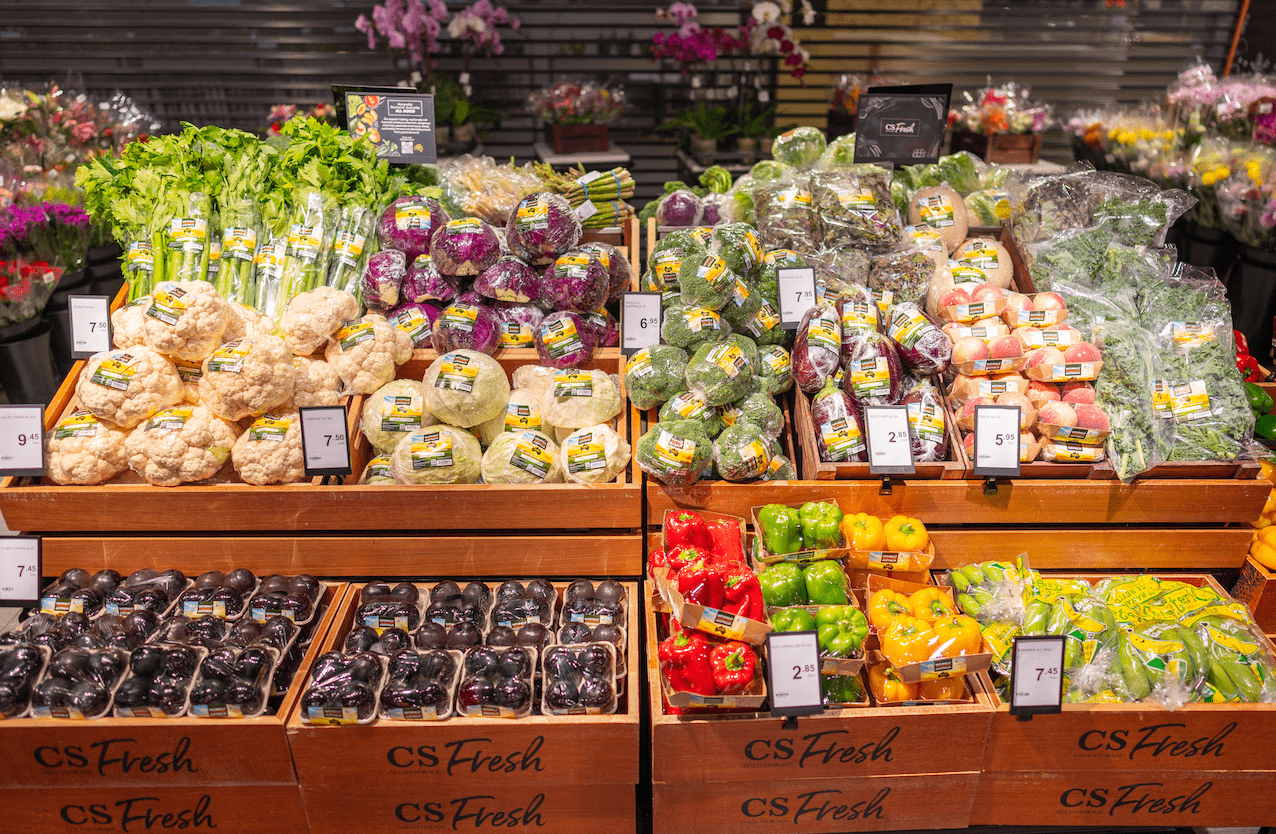Hippies have long been touting the benefits of organic food, but as more organic stores open up and organic products are more readily available in our supermarkets, it’s clear that more people are buying organic than just left-wing activist types. Health may be the reason most of us are prepared to pay the premium prices that organic produce demands, but there are other reasons to go organic.
Au Natural
In very general terms, organic produce is that which is harvested and packaged with minimal involvement of pesticides and chemicals (this includes chemical engineering, meaning genetically modified foods do not comply with organic regulations). For instance, pests and diseases are controlled by rotation programs, animal grazing and strategic placement of other repellant plants rather than by spraying of pesticides. Steroids cannot be used to make vegetables plumper, and synthetic coats cannot be applied to make fruit look shinier. This means primary organic produce is grown in its most natural state.
For instance, at Rosnay organic vineyard and olive farm in Australia, native plants and trees are strategically planted to encourage birds, the vineyard’s natural pesticide. Although the vineyard doesn’t use any chemical defense to ward off the hazardous vine moth caterpillar, the presence of hungry birds nesting in the vines means the caterpillars don’t pose a threat to Rosnay grapes. Even weeds, grass and clover are encouraged to grow around the vines, as their roots break up the soil, creating channels for worms to do their work. In the winter, sheep are allowed to roam through the vineyards, to keep the weeds under control.
To be certified organic in Singapore, produce must comply with the regulations for harvest and production set out by the World Health Organization’s Codex Alimentarius Commission. The Guidelines for the Production, Processing, Labelling and Marketing of Organically Produced Foods sets out in detail the requirements for gaining organic certification.
You Are What You Eat
For most people, the greatest reason for buying organic produce is to reduce their intake of chemicals. For instance, former General Manager of Whatever, Julia Curtis (who worked for 12 years as an energy and environmentally sustainable business and agriculture consultant), cites several health benefits to eating organic, such as a reduction in cardiovascular disease, colon cancer, Alzheimer’s and attention deficit disorder in children. For Curtis, eating organic means an obvious elimination of harmful by-products of conventional farming, such as heavy metals like lead and mercury in foods like fish. Indeed, this is the more popular perception of the result of consuming organic foods—they are healthier for the body.
Interestingly, some nutritionists do not agree. Consulting Dietician and Nutritionist Bibi Chia, from Eat Wise, gave us a surprisingly different take on the nutritional benefits of organic foods. “It is always logical to assume that food is healthier if not contaminated by pesticides, nitrates, and other toxic agents,” says Chia. But she also stresses that while there is much anecdotal evidence touting the benefits of organics, there is little scientific evidence to show that eating organic foods is more beneficial than eating conventionally farmed foods. According to Chia, any number of factors, such as demographics, geographic origin of food, food production and processing and consumption patterns might influence food’s microbiological safety. “At our present state of knowledge, other factors rather than safety aspects seem to speak in favor of organic food,” she says.
On the Side
Given the potential environmental problems we face with global overpopulation and increasing pollution levels, organic farming has many benefits over conventional farming other than just health. Organic farming practice encourages the natural ecosystem to thrive. Rather than killing all the bugs, which then affects the sustainability of bird life and other animals further up the food chain, organic farming encourages the growth of natural grasses and plants, creating a friendly environment for native flora and fauna.
At local organic farm Bollywood Veggies, the butterflies, chameleons, scorpions, monitor lizards and fireflies that live among the plants are a rare way Singaporean schoolchildren can interact with native animals in their natural habitats while still learning about other native plants. In this casual environment, kids are encouraged to pluck wild flowers, and dogs can roam the patches, in an effort to educate Singaporeans about the local ecosystem that has diminished on the rest of the island.
It is the holistic effects of conventional farming that organic farmers such as the incorrigible Director of Bollywood Veggies Ivy Singh-Lim and Evelyn Eng-Lim of biodynamic Green Circle Eco-Farm are trying to teach to their visitors. Eng-Lim points out that we are not isolated, so that everything we do affects everything around us. “When we paint foods with artificial chemicals, then we contaminate the whole food chain, even the waters,” she says.
And if we stick with the theory that chemical consumption is harmful, then eradicating the use of chemicals in farming can only be beneficial for the laborers growing our food. Especially in developing economies, where farm laborers are often paid low wages, organic farming means workers are no longer exposed to chemical pesticides. Curtis points out that in these countries, organic farming is of particular relevance, as it lends itself to smaller scale farms that can be run by families, rather than large industrial farming.
But if taste is all we really care about, then organic farming has its advantages here as well. Keeping plants and soil free of pesticides results in lower water consumption, as harmful toxins no longer need to be diluted. Because of this, the plants themselves absorb less water, making them tastier.
It is undeniable organic produce is more expensive, due in large part to the increased labor costs associated with the practice. Still, there is something reassuring about the fact that at Green Circle, vegetables undergoing extreme pest problems are hand picked and individually washed rather than resorting to using pesticides. While the potential health benefits of organics is an issue of contention, there is no doubt that the additional effects of maintaining native biodiversity, reducing chemical waste and supporting developing small businesses are all good enough reasons for us to go organic.
ORGANIC SHOPPING
Here are some of the places to find organic produce in Singapore.
Cafes
WHATEVER Bookstore and Café—31 Keong Saik Rd., 6221-0300.
YogiHub—28 Stanley St., 6220-4344.
Farms
Bollywood Veggies—100 Neo Tiew Rd., 6898-5001. Open Wed-Sun 9am-6pm; guided tours available at $5 per person for a minimum of 40 people.
Green Circle Eco Farm—41 Neo Tiew Rd., at street lamp post 149, 6867-9286. Internet orders available for minimum $25 purchase at www.greencircle.com.sg.
Market
L’Organic Market—Dempsey Rd., open Wed 9am-3pm, Sat 8am-2pm.
Spas
KOOJ Med Spa—#09-08/09 Parkview Sq., 600 North Bridge Rd., 6229-6733.
SK-II Boutique Spa—Senze Salus, 31 Scotts Rd., 6836-9168. Body treatments use organic essential oils.
Stores
Botanicus—3/F, 16A Lorong Mambong, 6462-4266.
Brown Rice Paradise—#03-15/16 Tanglin Mall, 163 Tanglin Rd., 6738-1121.
Earthnuts—#01-01, 793 Bukit Timah Rd., 6463-1233.
Wine
Rosnay organic wines can be purchased at Friends at Chomp Chomp (#01-01A, Serangoon Garden Village, 1 Maju Ave., 6289-2600).





